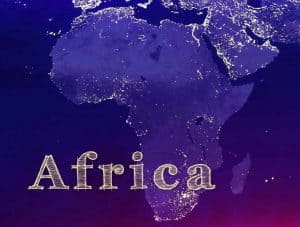Digital currency for payments Dash announced on Tuesday it has formed a partnership with KuvaCash to launch a program that is designed to solve Zimbabwe’s ballooning inflation, collapsing currency, and declining national economy.
 According to Dash, KuvaCash is a Dash-record $550K USD undertaking, funded directly by the Dash treasury via its unique governance model, and aims to provide Zimbabwe with its first-ever peer-to-peer localized cryptocurrency payment service for anyone with a phone-number-based messaging system. The company noted that locals currently have to wait hours in bank queues to access their money and are experiencing exorbitant fees on transactions. The Zimbabwean Government has notably tried to address the crisis by issuing bond notes matching the price of the U.S. dollar as a fix, but this remains a stop-gap measure, rather than a permanent money system. CEO of Dash Core Ryan Taylor stated:
According to Dash, KuvaCash is a Dash-record $550K USD undertaking, funded directly by the Dash treasury via its unique governance model, and aims to provide Zimbabwe with its first-ever peer-to-peer localized cryptocurrency payment service for anyone with a phone-number-based messaging system. The company noted that locals currently have to wait hours in bank queues to access their money and are experiencing exorbitant fees on transactions. The Zimbabwean Government has notably tried to address the crisis by issuing bond notes matching the price of the U.S. dollar as a fix, but this remains a stop-gap measure, rather than a permanent money system. CEO of Dash Core Ryan Taylor stated:
“I have been advocating for quite some time the potential benefits Dash can provide to economies with less stable currencies, and Zimbabwe seems a prime location for these benefits. This project in particular is well-researched with value propositions, branding, and go-to-market strategies tailored to the local market. Combining the ideal network – Dash – with a well-considered strategy should lead to a high probability of success.”
Dash revealed that starting in the second quarter of 2018, KuvaCash will roll out a cash replenishment model to instill confidence in residents, allowing them to cash out their digital currency into USD fiat at any time, reduce transaction fees, and provide enhanced financial security and liquidity. Finance and Technology Director of KuvaCash Andreiko Kerdemelidis commented:
“The informal economy has U.S. dollars in circulation, but they are no longer being managed by banks and are physically quite dirty. People are scrubbing bills and hanging them up on clotheslines to dry, selling the cleaner bills at a 10-20% markup. The bonds the Zimbabwean government introduced in 2009 (pegged against the USD at a 1:1 exchange rate) are a stopgap measure, we don’t know what the long-term plan is for these notes but it is fair to say that Zimbabweans currently prefer USD bills to extant mobile-phone based payment solutions or bond notes. KuvaCash will give locals an ideal alternative to improve their ability to do business and buy everyday goods and services without hassle, overpaying on fees, and using secondary markets. The people of Zimbabwe deserve a far better solution and we plan to give it to them.”
KuvaCash is currently pursuing a money exchange and remittance license in Zimbabwe and the project is expected to receive government and reserve bank backing.

